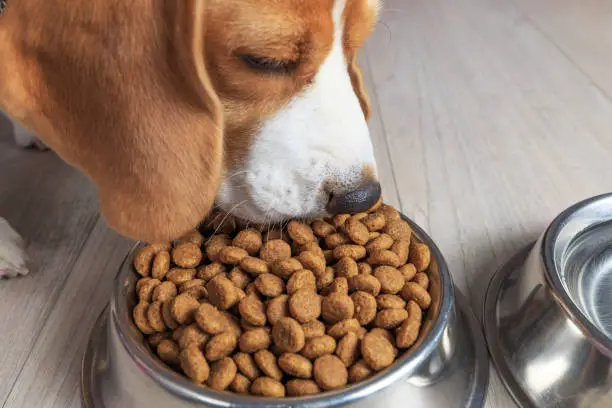Proper Nutrition

The Ultimate Guide to Proper Nutrition for Pets
Proper nutrition is foundational to the health and longevity of your pet. Just like in humans, what your pet eats affects their overall well-being, energy levels, and susceptibility to illness. With the myriad of pet food options and dietary recommendations available, it can be challenging to determine the best approach for your furry friend. This guide provides a comprehensive look at the essentials of proper pet nutrition, covering the basics of balanced diets, essential nutrients, and how to cater to different life stages.
1. Understanding the Basics of Pet Nutrition
Pet nutrition involves providing a balanced diet that meets all of your pet’s dietary needs. A balanced diet includes a mix of proteins, fats, carbohydrates, vitamins, and minerals, all in the right proportions. Each of these nutrients plays a vital role in maintaining your pet’s health.
- Proteins: Essential for growth, repair, and maintenance of tissues. They also provide energy. Common protein sources include meat, fish, and eggs.
- Fats: Provide energy and support cell structure. They also help absorb fat-soluble vitamins (A, D, E, K). Healthy fat sources include fish oil and animal fats.
- Carbohydrates: Serve as a source of energy and aid in digestion. Carbohydrates come from grains, vegetables, and fruits.
- Vitamins and Minerals: Vital for various bodily functions, including immune system support and bone health. They are found in a variety of foods and supplements.
2. Choosing the Right Pet Food
Selecting the right pet food involves understanding your pet’s specific needs and evaluating the options available. Here are some key considerations:
- Read Labels Carefully: Look for foods that list high-quality protein sources as the primary ingredient. Avoid foods with excessive fillers, artificial preservatives, or by-products.
- Consider Your Pet’s Life Stage: Puppies and kittens have different nutritional needs compared to adult or senior pets. Ensure the food you choose is appropriate for your pet’s age and size.
- Special Diets: Some pets may require special diets due to health conditions such as allergies, diabetes, or kidney disease. Consult your veterinarian for recommendations tailored to these needs.
3. Essential Nutrients for Pets
Each nutrient has a specific role in maintaining health:
- Proteins: Vital for muscle development and repair. Pets require high-quality proteins that contain all essential amino acids.
- Fats: Provide energy and support skin and coat health. Essential fatty acids like Omega-3 and Omega-6 are important for reducing inflammation and supporting overall health.
- Carbohydrates: Provide energy and aid in digestion. While not essential, they can be a good source of fiber and energy when included in moderation.
- Vitamins: Essential for various bodily functions. For example, Vitamin A supports vision, while Vitamin D aids in calcium absorption.
- Minerals: Important for bone health, nerve function, and overall bodily functions. Key minerals include calcium, phosphorus, potassium, and iron.
4. Understanding Life Stage Nutrition
Different life stages require different nutritional needs:
- Puppies and Kittens: Require higher levels of protein and calories to support growth and development. They also need specific nutrients to support developing bones and immune systems.
- Adult Pets: Need a balanced diet to maintain health and energy levels. Portion control and monitoring weight are important to prevent obesity.
- Senior Pets: May require adjustments in their diet to address age-related health issues. This could include lower calories to prevent weight gain, joint support supplements, or specialized nutrients to support organ function.
5. Portion Control and Feeding Guidelines
Feeding guidelines can help ensure that your pet receives the right amount of food:
- Follow Recommendations: Use the feeding guidelines provided by the pet food manufacturer as a starting point. Adjust portions based on your pet’s activity level, age, and health condition.
- Monitor Weight: Regularly check your pet’s weight and adjust food portions as needed to maintain a healthy weight.
- Avoid Overfeeding: Overfeeding can lead to obesity, which is associated with various health problems. Stick to recommended portions and avoid giving excessive treats.
6. Homemade and Raw Diets
Some pet owners opt for homemade or raw diets for their pets. While these diets can be nutritious, they require careful planning to ensure they meet all of your pet’s nutritional needs.
- Homemade Diets: Must be balanced and include all essential nutrients. Consult with a veterinary nutritionist to create a recipe that meets your pet’s needs.
- Raw Diets: Also known as BARF (Biologically Appropriate Raw Food), can be controversial. Ensure that any raw food diet is prepared and handled safely to avoid health risks.
7. Hydration and Water Intake
Proper hydration is just as important as nutrition:
- Fresh Water: Ensure your pet has constant access to clean, fresh water. Water supports digestion, nutrient absorption, and overall health.
- Hydration and Diet: Some pet foods, like canned food, provide additional moisture, which can be beneficial for pets that don’t drink enough water.
8. Monitoring and Adjusting Your Pet’s Diet
Regularly assess your pet’s health and make dietary adjustments as needed:
- Watch for Changes: Monitor your pet’s weight, coat condition, and overall energy levels. Changes may indicate a need for dietary adjustments.
- Consult Your Vet: Regular veterinary checkups will help ensure your pet’s diet continues to meet their evolving needs.
9. Common Dietary Myths
There are several myths about pet nutrition that can lead to confusion:
- Grain-Free is Better: Not all pets need grain-free diets. Most pets can digest grains without issue. Consult your vet to determine if a grain-free diet is necessary.
- Human Food is Safe: Many human foods are not suitable for pets and can cause health problems. Stick to pet-safe treats and foods.
Conclusion
Proper nutrition is essential for the health and well-being of your pet. By understanding the basics of pet nutrition, choosing high-quality food, and catering to your pet’s specific needs, you can help ensure they live a long, healthy, and happy life. Regular consultation with your veterinarian will help you make informed decisions and keep your pet’s diet on track. Prioritize your pet’s nutrition, and you’ll be investing in their overall health and happiness.




